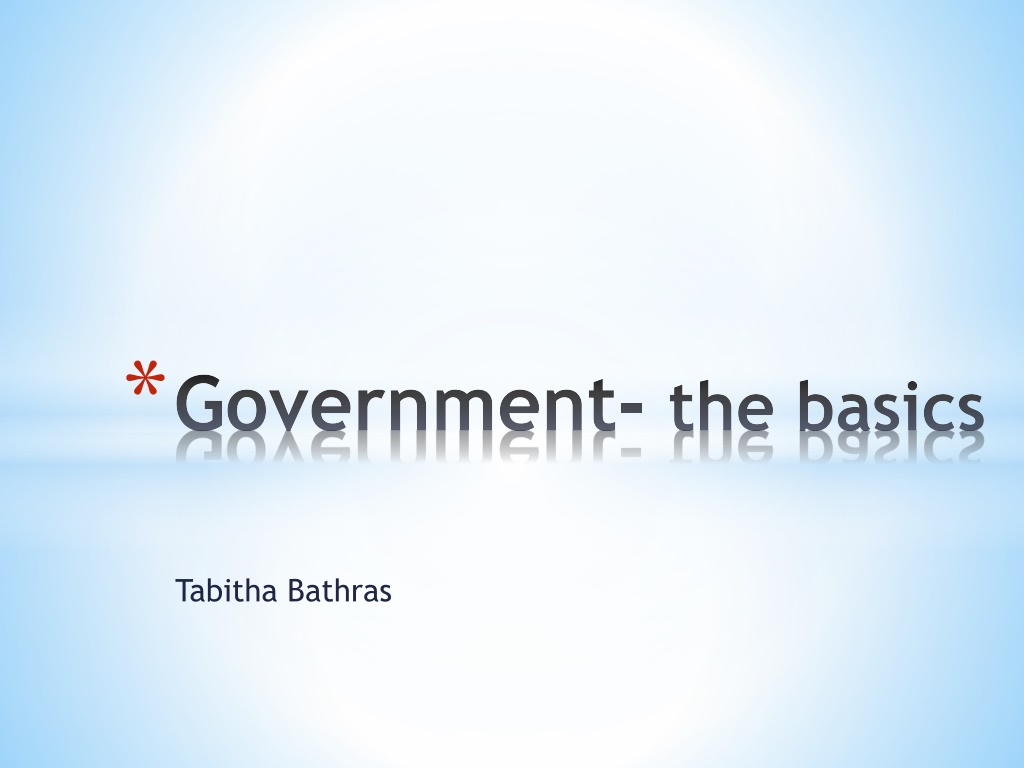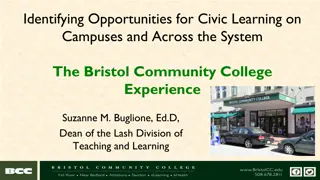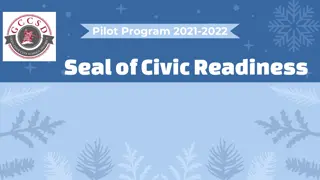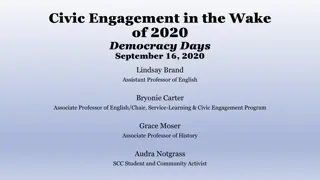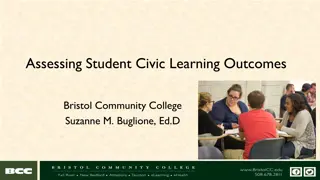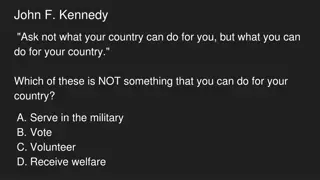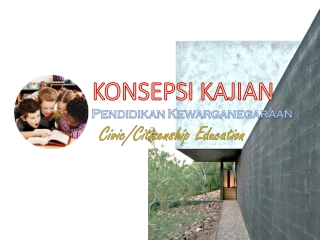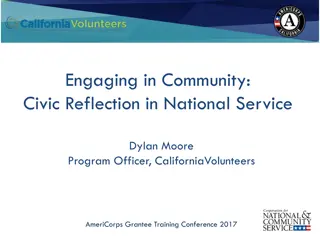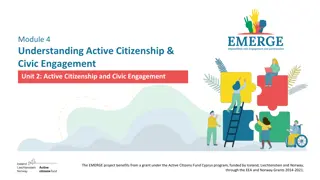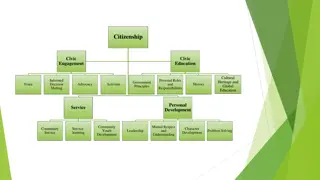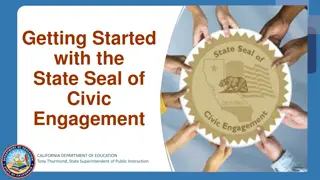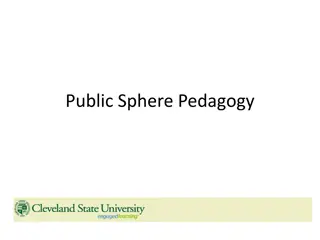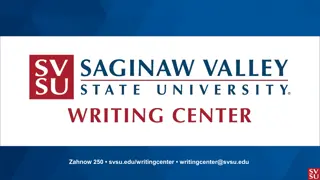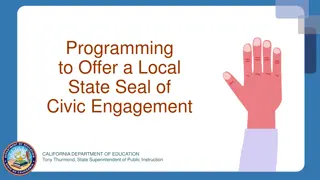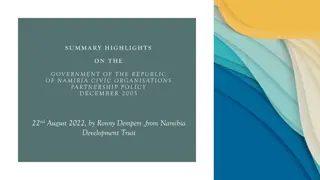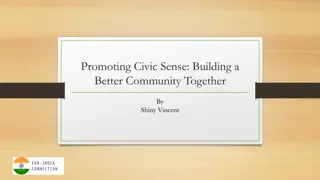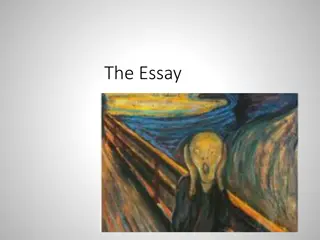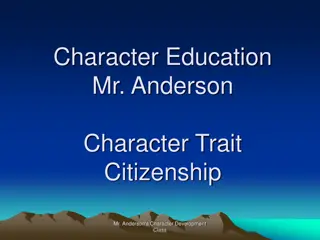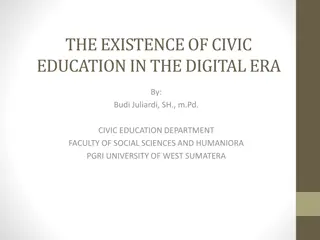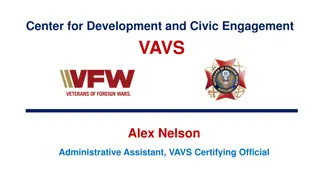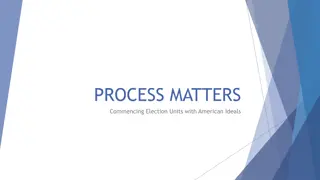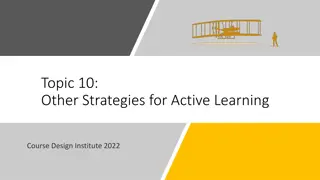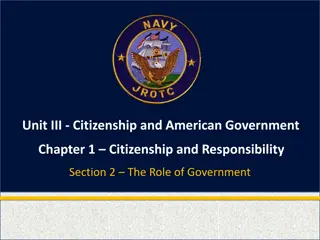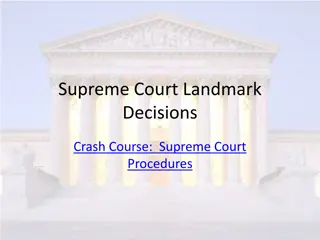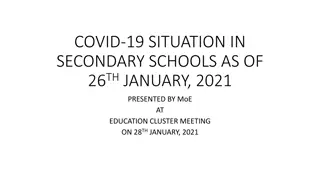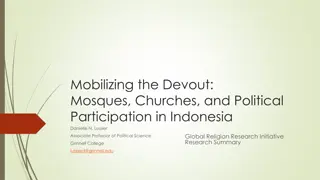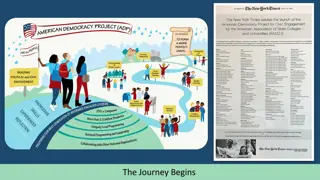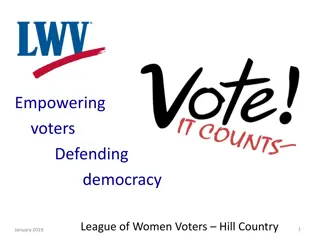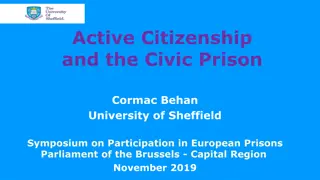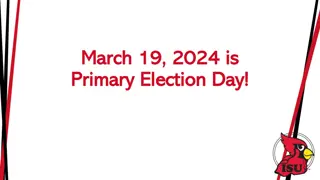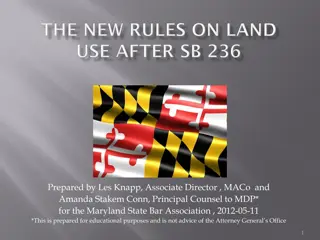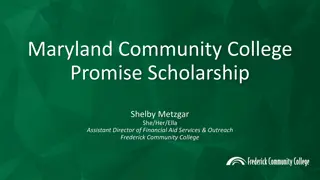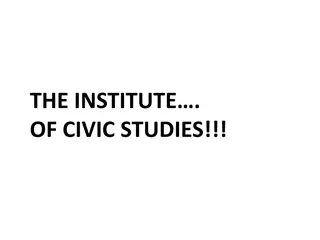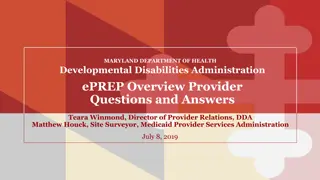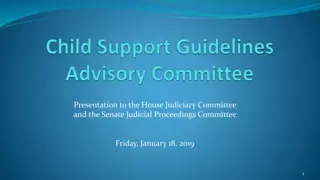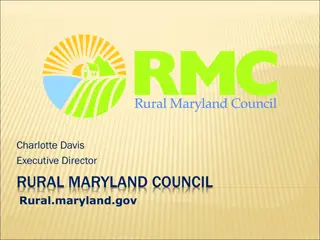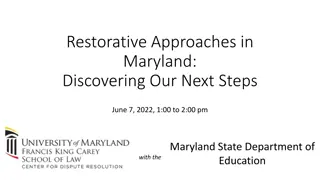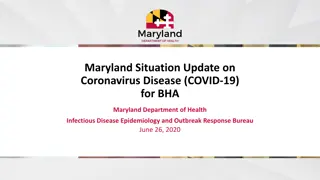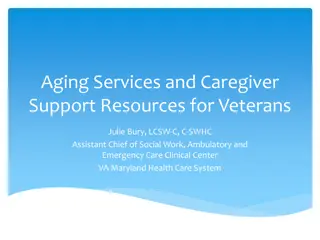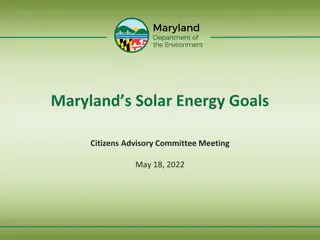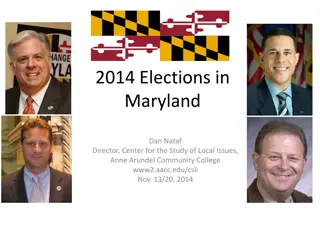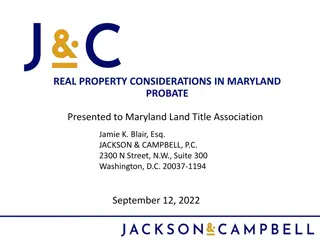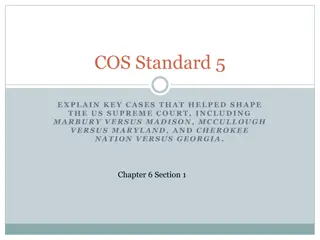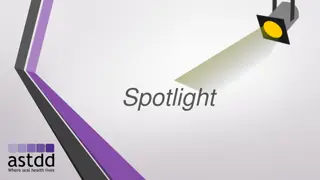Exploring Government and Civic Engagement in Maryland Schools
Dive into the basics of government and civic engagement in Maryland's 4th-grade curriculum. Students learn about responsibilities tied to basic rights, sources of political information, the rule of law, and the structure of the MD General Assembly and judiciary system. Activities include mapping rights, tableau presentations, and tree map vocabulary exercises reflecting on government branches. The interactive learning experience aims to develop civic participation skills in students.
Download Presentation

Please find below an Image/Link to download the presentation.
The content on the website is provided AS IS for your information and personal use only. It may not be sold, licensed, or shared on other websites without obtaining consent from the author. Download presentation by click this link. If you encounter any issues during the download, it is possible that the publisher has removed the file from their server.
E N D
Presentation Transcript
*Government- the basics Tabitha Bathras
*Political Science *Describe responsibilities associated with the 5 basic rights and explain why these responsibilities are important *Identify various sources of information that are available to citizens to make political decisions *Describe the rule of law and explain how it impacts individuals and groups *Outline the structure and function of the MD General Assembly and the roles of state senators and delegates *Describe the role of MD s state judiciary system *Social Studies Skills & Processes *Engage in civic participation and public discourse *Maryland State Curriculum *2 week duration *4thgrade
*Opening day activity *What rights do you have? 1. Students create a circle map to show rights they think they have 2. Watch PowerPoint of the 5 Basic Rights 3. Group tableau to represent one of the 5 basic rights *Seagull Feather Tickets- behavior reward system *Govt. Branch Presentation Day- Dress for Success! *Brain Target One Emotional Climate
*Desks are grouped for student collaboration *Open space areas are available for tableau presentation *Significant govt. buildings displayed *White House- executive branch *Capitol Building- legislative branch *Supreme Court building- judicial branch * Roles of Government bulletin board *Paper towel rolls are used to hang the roles for each branch-creates novelty *Brain Target Two Physical Environment
*Day 2 Activity *Groups given a skeleton tree map and must organize vocabulary words related to the branches of the federal govt. to show background knowledge *After formative assessment of prior knowledge students will go into the text to fix the tree map *Organization of MD state govt. tree map will be displayed and students will compare/contrast *Wrap up- Frame of Reference ties together basic rights lesson and structure of govt., as well as providing big questions *Brain Target Three Designing the Learning Experience
*Brain Target Three Designing the Learning Experience
*Brain Target Three Designing the Learning Experience
*Brain Target Three Designing the Learning Experience
*Day 3 Activity: Executive Branch *PowerPoint on the federal executive branch *Presidential Powers! partner activity * Students decide which of 4 presidential powers the President would use in 8 different scenarios *Tree Map review of comparison between federal and state executive branches *Wrap Up- Bucket of Stuff * Each group is given a bucket of random items and must represent the role of the federal executive branch by creating a display and explaining their thinking *Brain Target Four Declarative & Procedural Knowledge
*Day 4 Activity: Legislative Branch *PowerPoint on the federal legislative branch *Vocabulary- veto & 3/5 majority *School House Rock video- I m just a bill *http://www.youtube.com/watch?v=_TI8xqLl_-w *Model The Teacher Bill *Demonstrate identifying pros/cons while considering people the bill will effect *Vote based on the pros/cons *Group Bills *Students will identify pros/cons in groups and then present their bill to the class *Class vote for each bill * Tree Map review of comparison between federal and state legislative branches * Brain Target Four Declarative & Procedural Knowledge
*Day 5 Activity: Judicial Branch *PowerPoint on the federal judicial branch *Model the Johnson Elementary Case * Students discuss case in pairs and then with whole group * Model how to write an opinion while thinking aloud about how to consider the spirit of the law when making a decision *Group Cases *Students divided into 3 large groups and given talking chips to promote and level the discussion *Write a group opinion on the case and then present their opinion to the class *Tree Map review of comparison between federal and state judicial branches *Brain Target Four Declarative & Procedural Knowledge
*Week 2 Activity *Create a Branch of Government! *Groups of 4-5 students *Choice of poster/PowerPoint/Smartboard *Define the purpose of the branch *Explain why the branch is necessary by creating a fictitious scenario *Define their positions within the branch *Create a building to represent their branch *Presentation Day- Dress for Success! *Brain Target Five Extension & Application of Knowledge
*Executive Branch *Formative assessment through Bucket of Stuff- explain your thinking * Legislative Branch *Formative assessment through observation of groups and discussion of pros/cons of bills *Judicial Branch *Formative Assessment through group presentation of problem and verdict with supporting details *Brain Target Six Evaluating Learning
*Summative Assessments *Brace Map Analogies *Students given federal-level descriptors and must create an analogy with the matching state descriptor (Word Banks given to students with accommodations) *Brain Target Six Evaluating Learning
*Summative Assessments *Create a Branch of Government! * Rubric provided for presentation * During presentations audience members will record on an index card one thing the group did very well and one thing they could have improved on * Groups will be given an opportunity to review the reflection cards *Write a reflection paragraph based on the big question from BT-3 *Why is our government structured as a democracy? *Brain Target Six Evaluating Learning
